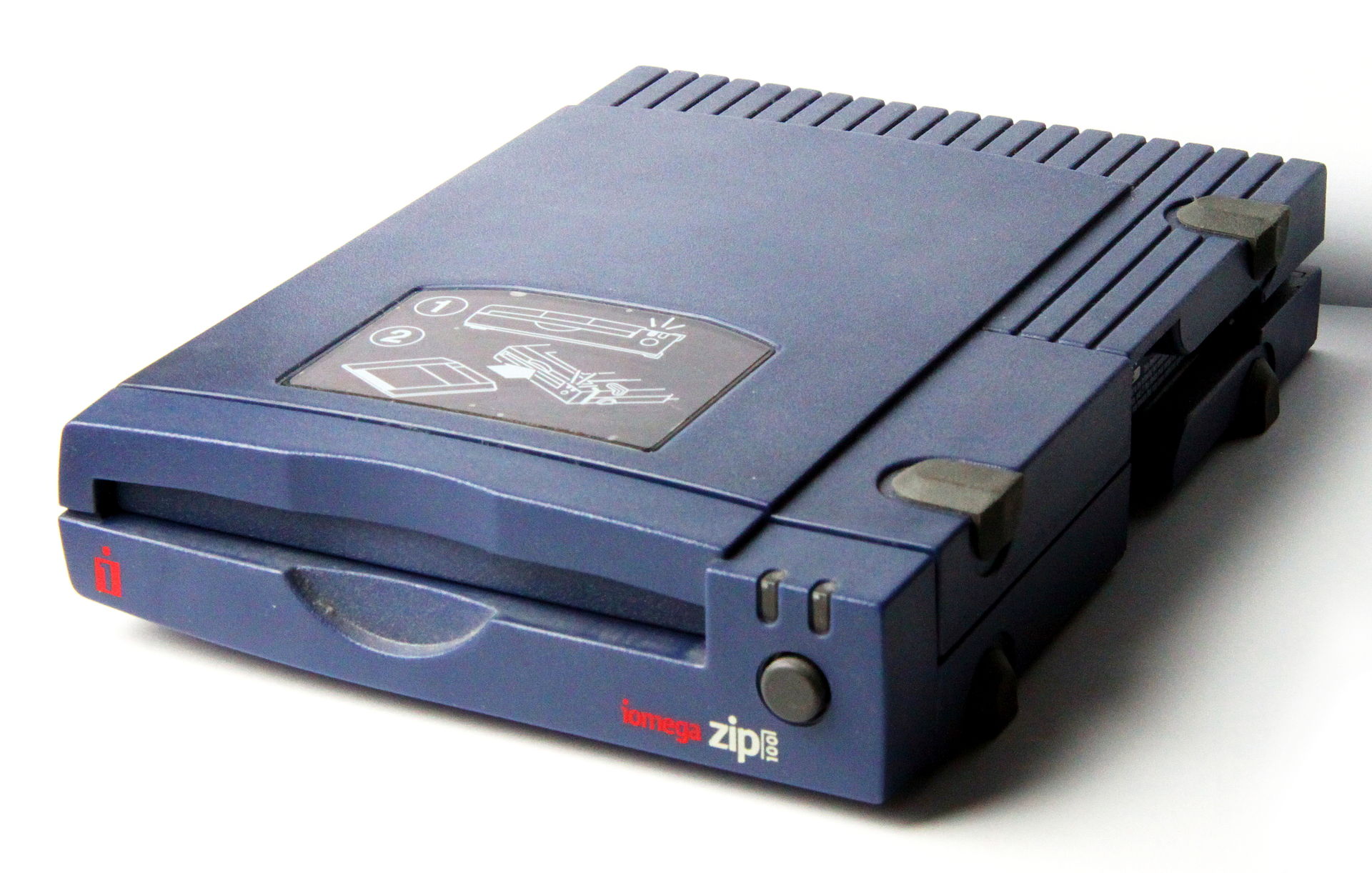

In a year of ubiquitous computing, it seems strange to think of a time when it was difficult to transfer (relatively) large quantities of data between devices.
As mentioned in our look back at the floppy disk era, most computing environments before (and indeed during) the 1990s tended to be non-networked, and users often found themselves needing something that would allow them to store data and exchange media.
Computers of the 1980s and 1990s therefore offered either a floppy disk drive or (much later) a CD-ROM drive, but CDs needed a specific drive that could burn the data onto the CD, and traditional floppy disks tended to have very limited storage capacity.
So what happened if the user needed more storage capacity?
It was into this void stepped Iomega and in 1994 it designed and made a range of Zip drive products that were intended to compete with (and ultimately) replace the 3.5″ floppy disk.
Initially these Iomega Zip drives connected to a computer via SCSI or parallel port, but later models used USB and FireWire.
Iomega had identified and successfully exploited a niche within the market (especially the graphic arts sector), and its Zip drives soon became a popular option thanks to their relatively low cost ($200 at the time, coupled with one cartridge) and their ability to offer large amounts of storage on the easily portable cartridges.
The storage element (100MB initially) cannot be overestimated as a much needed leap forward for many users, struggling with the 1.44MB limitation of floppy disks. Later models offered 250MB or even 750MB storage capacity per disk.
The Zip cartridges did have their problems however, with the dreaded ‘click of death’ being a notable issue.
The problem even resulted in a lawsuit being filed against Iomega in 1998, as the “lifetime warranty” of these devices was felt to be misleading.
And, like their floppy disk cousins, Zip drives were also prone to developing misaligned heads and dust contamination.
The high point (sales wise) for the Zip drive was definitely in the mid to late 1990s, but Zip drives began to lose out in the early 2000s due to the rise of other mass portable storage technology such as CD-R and then CD-RW drives, and increasingly USB flash drives.
Matters were not helped by the fact that computers began to be shipped with hard disks with gigabytes of storage, lessening the need for additional storage.
Iomega’s fortunes were tied to its Zip drive and when sales began to wane, its stock went from $100 per share in the 1990s, and plummeted to just $2 in the mid 2000s.
Iomega did release a slew of new products including the HipZip MP3 player, the FotoShow Digital Image Center, external hard drives, optical drives, and NAS products in an effort to find itself a new niche, but they never matched the success of the Zip drive.
In 2008 Iomega was acquired by EMC and it became a division of the storage giant offering a range of storage servers.
And then in 2013, EMC formed a joint venture with Chinese firm Lenovo, named LenovoEMC, that took over Iomega’s business.
LenovoEMC rebranded all of Iomega’s products under its name, and the Iomega brand slipped away into history.
American space agency prepares for testing of Boeing's Starliner, to ensure it has two space…
As UK and Europe develop closer military ties, European Commission says it will invest €1.3…
Zuckerberg seeks to revive Facebook's original spirit, as Meta launches Facebook Friends tab, so users…
Notable development for Meta, after appeal against 2021 WhatsApp privacy fine is backed by advisor…
First sign of shake-up under new CEO Lip-Bu Tan? Three Intel board members confirm they…
Trump's nominee for SEC Chairman, Paul Atkins, has pledged a “rational, coherent, and principled approach”…